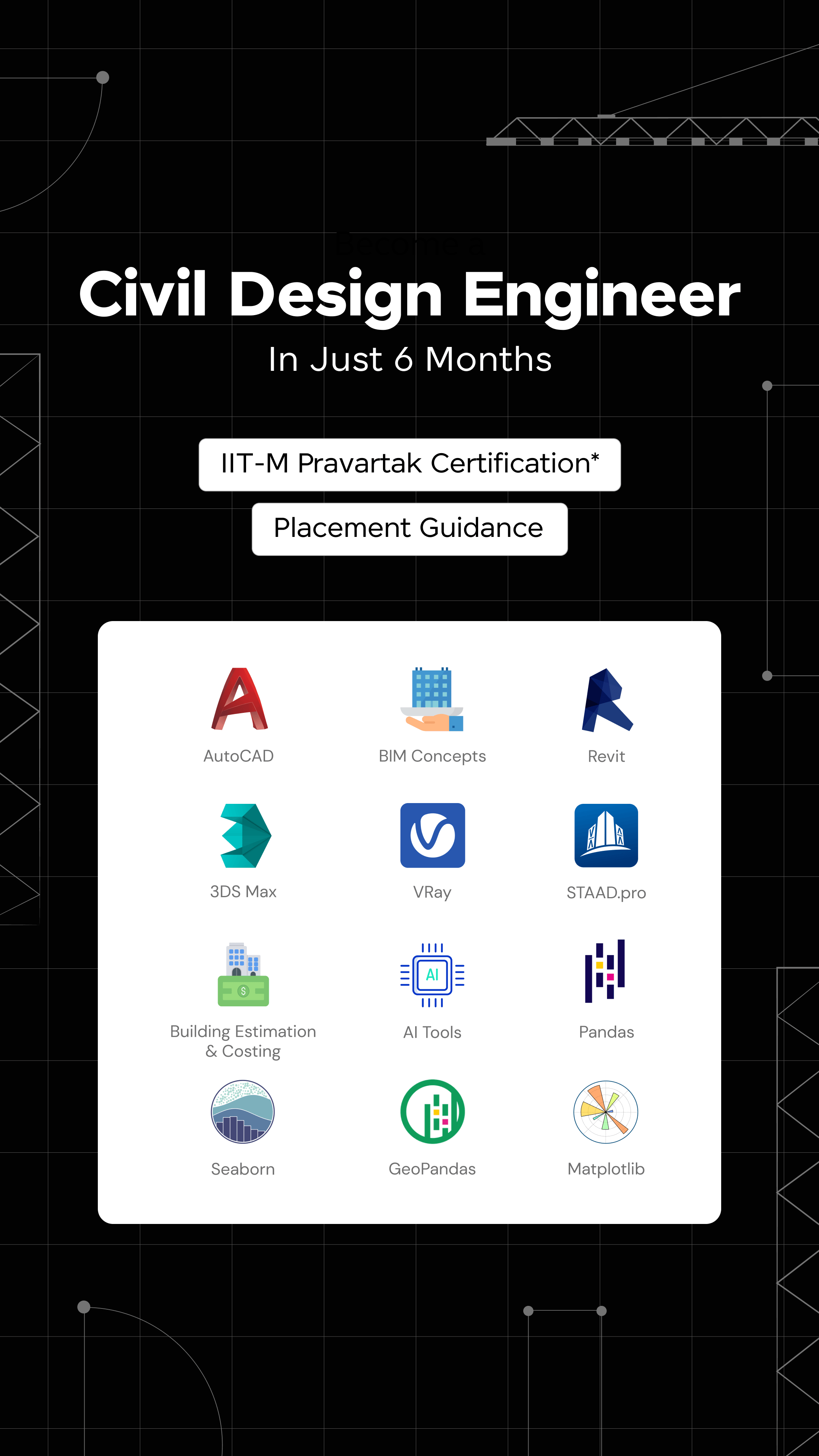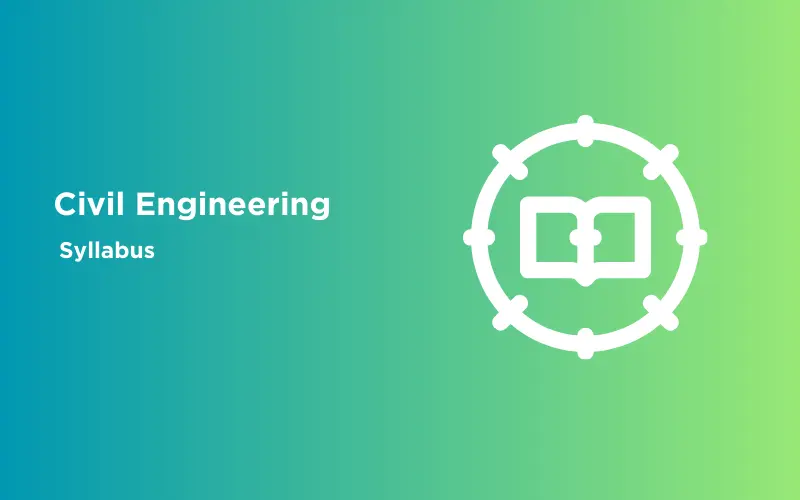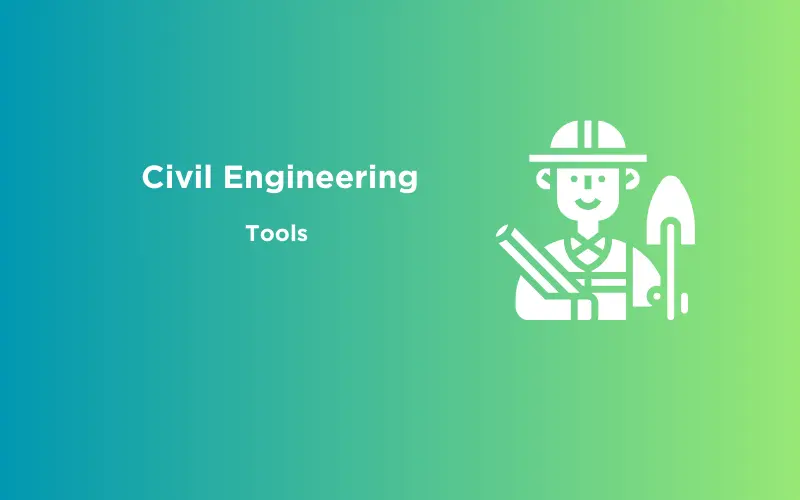
Professional Civil Engineer Resume: A Guide To Attract Employers in 2024
Oct 03, 2024 3 Min Read 2533 Views
(Last Updated)
The world is moving towards modernization leading to an increase in the popularity of civil engineering. The field is getting competitive and it is important for you to stay ahead of the crowd to achieve big. For that, you need to have a professional and compelling civil engineer resume.
Civil engineers are the building blocks of this modern society. So, it is important for recruiters to recruit talented as well as trustworthy civil engineers. In order to choose the right apple out of a big basket, the recruiters have to check your civil engineer resume. That’s why it is important for you to build a professional resume.
But, if you don’t know how to do that, worry not. We got you covered. In this article, you will learn the tips and tricks to build a professional civil engineer resume that will enhance your career prospects. We also attached a sample civil engineer resume in order for you to understand it much better. So, read it till the end and escalate your career.
Without any delay, let’s get started.
Table of contents
- Building a Professional Civil Engineer Resume: A Guide
- Contact Information
- Objective or Summary
- Education
- Professional Experience
- Skills
- Professional Memberships
- Internships or Entry-Level Experience
- Projects
- Certifications and Licenses
- Professional Development
- Example of a Professional Civil Engineer Resume
- Conclusion
- FAQs
- How should I format my civil engineer resume?
- Are certifications and licenses important to include on a civil engineer resume?
- How long should my civil engineer resume be?
- Can I include non-engineering work experience on my resume?
- Should I include references on my civil engineer resume?
Building a Professional Civil Engineer Resume: A Guide

The scope of civil engineering in India is very promising in this era and it is important for you to have a civil engineer resume that enlists all your skills, achievements, and performances that attract recruiters.
Let’s see the things that need to be there on your civil engineer resume to make it more professional:
1. Contact Information
Begin your civil engineer resume with your full name, phone number, professional email address, and LinkedIn profile (if applicable). Ensure that this information is accurate and up-to-date as recruiters can reach you only through this contact information. Make sure to have a clean, professional format as this will set the tone for the rest of your resume.
Before we move into the next section, we’d like to ensure you are well-versed in the essentials of civil engineering. To smoothen your learning process, consider enrolling in GUVI’s Civil Engineering Course with Placement Assistance. You’ll gain hands-on knowledge of fundamental tools such as AutoCAD, Revit, 3dsMax, etc, needed for modern civil design.
Additionally, if you want to get started in the field through self-paced learning, try GUVI’s AutoCAD certification course.
2. Objective or Summary
Build a concise objective or summary that highlights your career goals and summarizes your key qualifications in your civil engineer resume. This section should give the employer a quick glimpse of what you bring to the table.
For example: “Dedicated civil engineer with a strong background in infrastructure projects, seeking an opportunity to contribute technical expertise and project management skills.” This explains your strengths as well as gives the recruiter an idea of what you are going to do for the company.
3. Education
List your educational background, starting with your most recent degree. Include the institution’s name, degree earned, graduation date, and relevant academic achievements. If you have additional certifications or licenses, mention them here as well.
It would also be beneficial if your educational background has degrees related to civil engineering as this proves that you are so keen on becoming a civil engineer and working towards it from the start.
4. Professional Experience
Detail your work experience in reverse chronological order, starting with your most recent position. For each job, include the company name, location, title, and employment dates.
Use bullet points to describe your key responsibilities and achievements. Highlight any projects you worked on, specifying your role and the outcomes achieved. You can also elaborate on your achievements where possible to demonstrate impact.
5. Skills
Create a skills section that showcases both technical and soft skills relevant to civil engineering. Soft skills generally include communication, and leadership skills to assess your compatibility within a team.
Include proficiency in software tools such as CAD for Civil Engineers, and technical skills as well (e.g., structural analysis, project management),
6. Professional Memberships
If you are a member of any professional engineering organizations or societies, mention them. This indicates your commitment to staying updated on industry trends and networking with other professionals.
7. Internships or Entry-Level Experience
If you’re a recent graduate or have limited experience, include internships, co-op experiences, or any relevant entry-level positions. Focus on how these experiences contributed to your skills and understanding of the field and how these understandings helped the company.
8. Projects
Consider adding a section specifically for notable projects on civil engineering that you’ve worked on. Provide details about the project scope, your role, and the outcomes achieved. This helps demonstrate your practical application of engineering principles in your civil engineer resume.
9. Certifications and Licenses
Clearly list any relevant certifications or licenses you hold. This is the most important section in a civil engineer resume as this will depict your understanding of the subject. So, make sure to have a professional certificate that is relevant to Civil Engineering issued by a Certified Organization. This will boost your resume’s outlook
10. Professional Development
Mention any workshops, training, or conferences you’ve attended to showcase your commitment to continuous learning and professional development.
Remember to tailor your civil engineer resume for each job application by emphasizing the skills and experiences most relevant to the specific position. Use clear, concise language, and proofread thoroughly to ensure a polished final product.
Example of a Professional Civil Engineer Resume
You have learned all the theoretical parts. It would be a waste if you don’t know how to implement it. In order to help with that, we are attaching a sample professional civil engineer resume that will help you grasp the concept well.

Kickstart your Civil engineering journey by enrolling in GUVI’s Career Program and become skilled in key concepts such as 2D and 3D design, 3D modeling, Structural Analysis, and much more. Build real-life projects with industrial mentorship and make your portfolio stand out!
Also, if you wish to explore through a self-paced learning mode, try GUVI’s AutoCAD certification course.
Conclusion
In conclusion, building an effective civil engineer resume is a critical step toward securing a rewarding career in the field of civil engineering. This guide has outlined the key elements to include in your civil engineer resume, from contact information to professional memberships, all the while highlighting the importance of tailoring your resume as well.
Remember, your resume serves as your professional introduction, making a strong first impression on potential employers. By carefully curating each section with attention to detail and relevance, you can position yourself as a standout candidate in the competitive world of civil engineering.
Also Explore: Fascinating Career Opportunities in Civil Engineering in 2024
FAQs
How should I format my civil engineer resume?
Use a clean, professional format. Begin with contact information, followed by an objective or summary, education, professional experience, skills, and other relevant sections.
Are certifications and licenses important to include on a civil engineer resume?
Absolutely. List any relevant certifications or licenses, such as Professional Engineer (PE) licensure or certifications in specific engineering software.
How long should my civil engineer resume be?
Aim for a concise and impactful document. Generally, one to two pages is sufficient, with a focus on quality over quantity.
Can I include non-engineering work experience on my resume?
Yes, but focus on transferable skills. Highlight aspects of previous roles that demonstrate skills applicable to civil engineering, such as project management or teamwork.
Should I include references on my civil engineer resume?
No, conclude your resume by stating that references are available upon request. This saves space and allows you to provide references when specifically requested by employers.


























Did you enjoy this article?